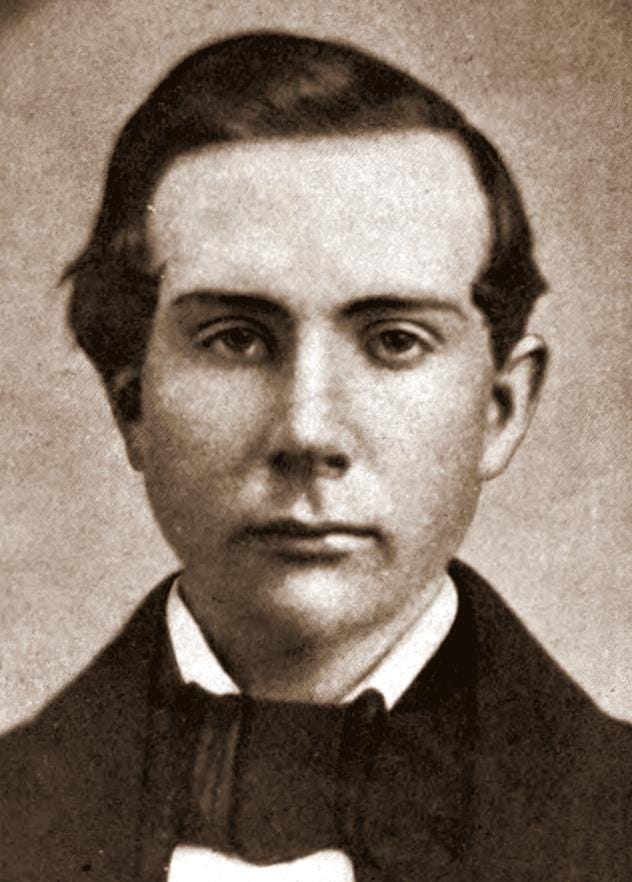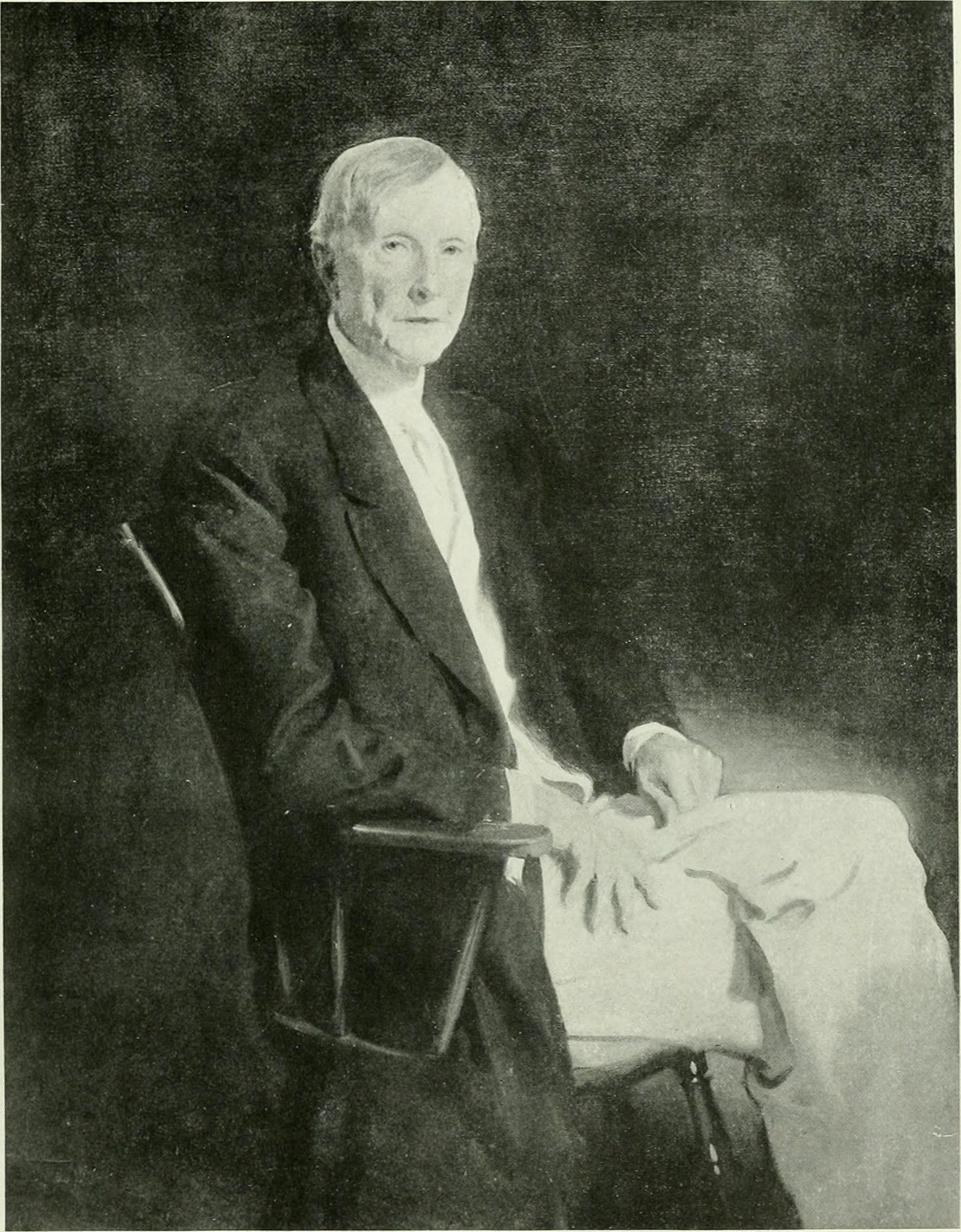
Muckrakers like Joseph Pulitzer really didn’t like John D. Rockefeller. That’s putting it mildly. Maybe the rabble-rousing publisher of the New York World had read a lot of Balzac, who’d said “The source of all great wealth is a crime.” Or maybe he just hated paying a buck to fill his Bugatti…knowing that, most likely, the beneficiary would be the guy who founded Standard Oil. The “Age of the Robber Barons” is now etched in the American psyche as a sort of pre-civilized era of horrifically dangerous working conditions, rampant child labor exploitation, non-existent consumer protection—all driven and controlled by the willfully nasty (or at best criminally negligent) top 1% of society…for the most part, guys in fancy top hats and frock coats who strolled around Central Park or Nob Hill, and summered in Kennebunkport or Florence. Few if any of yesteryear’s infamous Barons have as sinister a reputation as Rockefeller, on whose life the movie There Will Be Blood (starring Daniel Day-Lewis) was based…loosely…based…again loosely…on the Upton Sinclair novel, Oil!
Very loosely, as it turns out. The truth is: today’s wealth disparity between the richest 1% and the rest of America is wider than it’s ever been. And as for Rockefeller, as Bill Gates Sr. wrote in his wonderful memoir, Showing Up for Life: Thoughts on the Gifts of a Lifetime, Standard Oil’s founder, and his heirs, pursuant to the tycoon’s will and testament, and by making use of his enormous wealth*—“have done so many things for so many people it’s hard to get you arms around it.” (* Though an apples-to-apples comparison is hard, most experts still consider John D. Rockefeller to have been…in time- and other context-adjusted terms…the wealthiest person ever, let alone American.)
Bill Gates Sr. would know. First, his son was at one time the world’s richest person. Second, Bill was the first chair of the Bill & Melinda Gates Foundation—which has an endowment that’s 8 times that of Rockefeller’s.
Still….like what things, for instance? How did Rockefeller help humanity?
Like curing or dramatically reducing numerous dreaded diseases that afflicted the poorest of the poor. Like funding an array of creative improvements in education…from mobile schools that traveled with migrant farm workers so their children could attend school while they picked crops…to the first MBA (Harvard’s)…to the highly innovative University of Chicago (that’s produced 97 Nobel laureates). Like over a 20 year period (working with the Ford Foundation)…saving hundreds of millions of lives by transforming farming methods in Asia & Latin America; thereby saving more lives than were lost in World War One and World War Two, combined. And…as for DEI, though he was a devout Baptist born in 1839, his transformative gifts were radically progressive & inclusive: he insisted they be used to advance the public welfare…“without the distinction of race, sex, or creed.”
Then why was Rockefeller slandered so? Two main reasons, I think. First, then as now, Good News didn’t sell papers: "If it bleeds, it leads,” goes the adage. It’s a sad truth but a single grisly oil rig explosion sold more papers than the near-eradication of Ricketts, that had afflicted millions of poor Blacks in the Deep South and poor whites in Appalachia. Second, because there were plenty of awful capitalists, Rockefeller, being The King of Capitalism, was guilty by association (and lazy, sloppy journalism); so he became the bull’s-eye target for socialists like Upton Sinclair (author of The Jungle and Oil!, the latter which was the basis of the film, There Will Be Blood), and communists like Budd Schulberg (author of On The Waterfront and What Makes Sammy Run?, basis for the film, Wall Street).
However, as the students in my Ethics in Action class at Georgetown University come to realize after diving into the facts, though Pulitzer and his fellow Yellow Journalists succeeded in making Rockefeller a pariah in the eyes of most Americans (and the world), an objective assessment of the oil tycoon reveals him to be just the opposite: namely, a paragon of principled leadership.
What’s more, as with all of the leaders profiled in Under the Hood, his principles were forged at a very early age, most notably by his mother, pastor, grade school, Sunday school and vocational school teachers, and first employer. Well before his 20th birthday, Rockefeller’s code of conduct was etched in stone, and, from what I can tell, he adhered to it his entire life.
So what was his code, and how did he come to embrace it?
Principle 1. “Let money be thy servant, not thy master.”
Young Rockefeller demonstrated commercial acumen early on. But for him money was always a means to an end. Already making huge sums on commission as a teenager, he didn’t spend it on frills and luxuries, but on being more productive, to make more money; in order to employ more people and confer them with dignity, and to give more money away. The facts are irrefutable, notwithstanding all the “news” to the contrary.
Principle 2. Run a tight ship.
Rockefeller’s mother taught him that thrift was one of the highest virtues. As he described her: “She never wasted a thing.” While he was famous for being able to solve complex equations in his head, he kept meticulous accounts, in ledgers. As a teenager, he kept track of every penny he gave to charity…and he gave many dollars….when a single greenback went a very long way. He hated to owe people money and he hated it when people owed him or his employer money. He’d pursue a past due account like the peasant in the New Testament parable who tears her house apart looking for a single lost copper coin. Rockefeller’s scrupulous attention to detail also saved a lot of lives and injuries in the hazardous oil industry (again: exactly the opposite of how he’s portrayed…loosely…by Daniel Day-Lewis).
Principle 3. Study, study, study.
Rockefeller studied all the time. Throughout his life. He attended several trade and vocational schools and apprenticed every chance he could. However, his focus wasn’t Ivy League Trivial Pursuit, but the practical application of learning. So instead of having to buy oak barrels at $6/each, he could make them at $1/each. So instead of having to pay a series of middlemen & markups, he made his own sulfuric acid. He read and studied anything that could improve output, efficiency, or otherwise give him a leg up. He knew more about drilling than most drillers, more about metallurgy than most metallurgists. Though white, he was the embodiment of the NAACP’s iconic ad from the 1970s: “The mind is a terrible thing to waste.” He never wasted his, not for a second.
Principle 4. Never lie, cheat or steal, but don’t be afraid to use a loophole now and then.
I’ve not found a single instance of anyone saying Rockefeller wasn’t a man of his word, or didn’t abide by his contracts. Not a one. This is all the more striking given the fact that his father was a well-known con man, at the very least. However, some of the father’s canniness seems to have rubbed off on the son, as John D. was also very clever, and, though not a lawyer, a brilliant wordsmith, which he employed to introduce exit ramps for bad deals or other unexpected exigencies or Acts of God, insert seemingly benign caveats to his advantage, etc. He understood much better than most Baptists The Parable of the Wise Steward, which has perplexed Christian theologians for millennia…who couldn’t understand how Jesus (seemingly) condoned someone for being not just canny and shrewd but deceitful. My sense is it was part of Rockefeller’s deep-seated frugality…to compensate for his father’s unpredictable, unreliable and embarrassing lifestyle. At a minimum, Rockefeller’s business ethics are fully in sync with the Internal Revenue Code….the IRS saying it’s totally okay to do everything within your power to “avoid” paying taxes; but you can’t “evade” taxes. Rockefeller clearly wasn’t an evader of commercial or financial obligations. But just as clearly, he was expert at avoiding them…
Principle 5. Be an open book.
He always maintained that the “turning point” in his life was when he was hired as a clerk at age 16, in Cleveland. He sought the position because he had an innate facility with numbers, and he loved order and transparency. While his open book philosophy had strong Baptists roots, that extended to his life-long abstention from alcohol, tobacco, caffeine, and a host of other “sinful” indulgences, it also extended to a radical openness in his commercial activities. For instance, when proposing a merger with competitors, so confident was he of its benefit to them—he’d open his books so they could see how they couldn’t possibly be anywhere as efficient. His merger-mania was construed as being driven by a lust for power…but it was an extension of his obsession with thrift and order.
Principle 6. Being able-bodied is a blessing, slothfulness a sin.
Though he was reputed to be indifferent to the down-and-out as he strolled around Central Park or along Fifth Avenue, if he came across an obviously crippled man, woman or child—he’d often donate on the spot or make a note, and one of his staff would follow up with a donation, or new set of clothes. Little irked him more than seeing people who could work, and were offered work, but chose not to. But as regards those who wanted to work but couldn’t, he could be profligately generous.
Principle 7. Leave things better than you found them.
This was perhaps his cardinal principle. His mother’s life was lonely and unhappy until her boy didn’t just accompany her to church but conspicuously acted according to her belief system. He didn’t just talk the talk of The Great Awakening preachers that barnstormed Upstate New York before the Civil War; young John walked the walk. The Rockefeller family home was a chaotic and embarrassing wreck—until the boy brought home the bacon, restored order, and pride. He’s been much maligned for monopolizing the oil business, but it was a lot safer after he implemented his more orderly and humane working conditions. Though he was to some extent an autocrat, he was enlightened and compassionate, not some greedy despot. The Rockefeller Foundation is an authentic manifestation of the man, as opposed to a performative gesture designed to make amends later in life for prior wrongs.
Revisionism isn’t just healthy. It’s also essential to the functioning of a sustainable democracy. The democracy known as the United States of America couldn’t even get off the ground until its foundational Constitution had been revised 10 times…i.e., The Bill of Rights.
But revisionism should cut both ways. As Bill Maher often says, not everyone who preceded us was ill-informed, unscrupulous, or had inferior ideas. A great recent film, Mr. Jones, reveals how, despite the fact that a journalist won a Pulitzer Prize in 1932 for reporting regarding Ukraine—his award-winning “news” was a pack of lies, sold by Stalin. The news related to John D. Rockefeller was also often a pack of lies. The vast majority of misdeeds Standard Oil was accused of committing (and there were quite a few!)—occurred long after Rockefeller had retired…to devote himself to making the world a better place. Which he did.





Great article!!